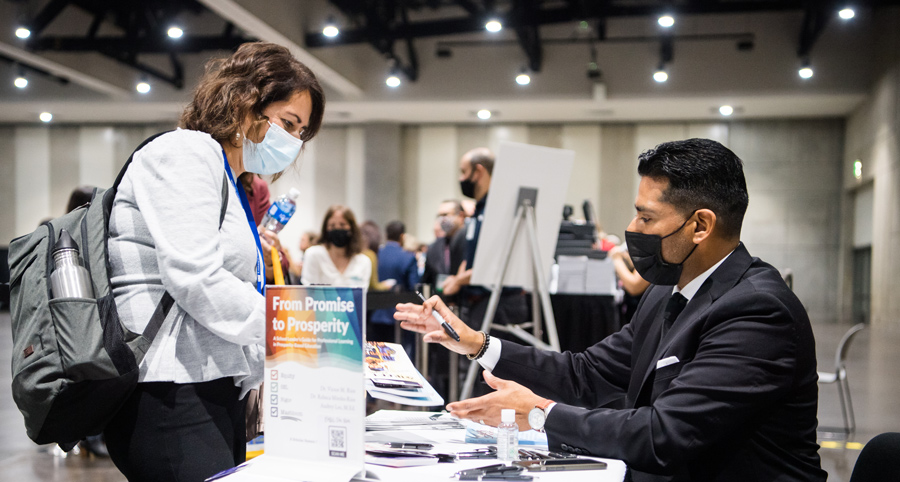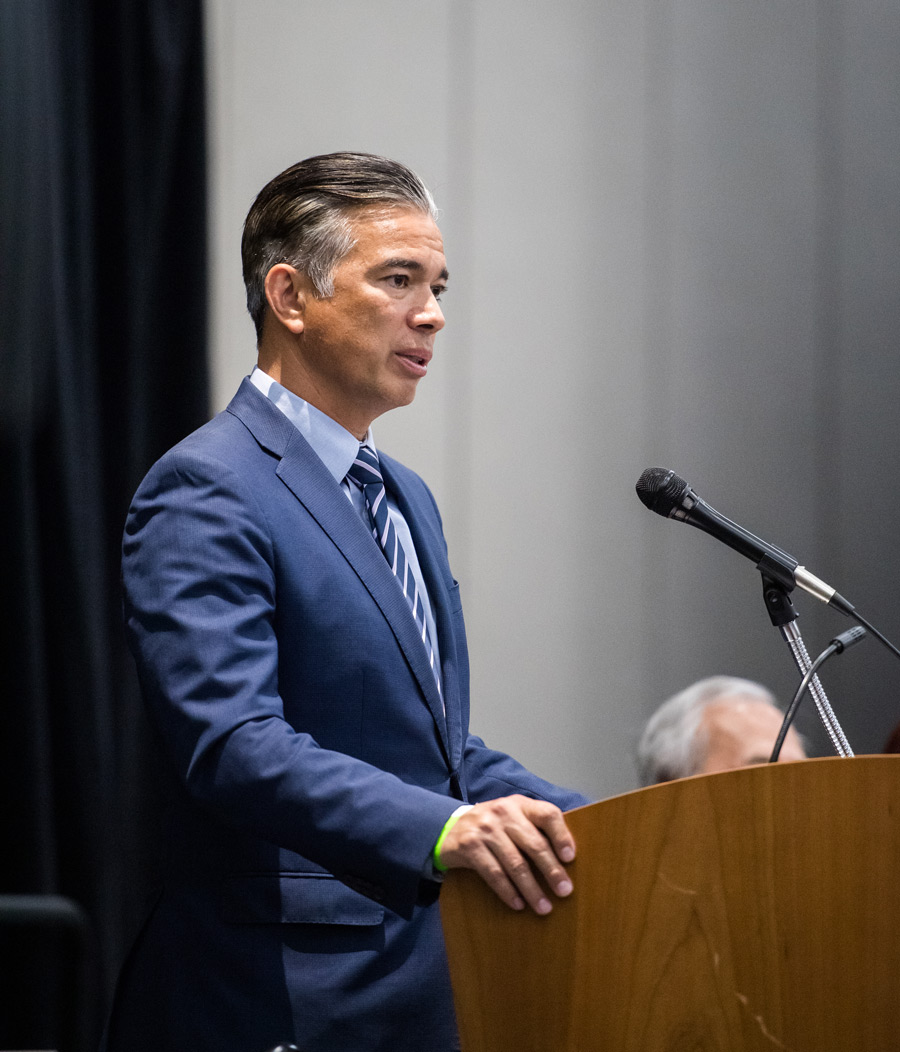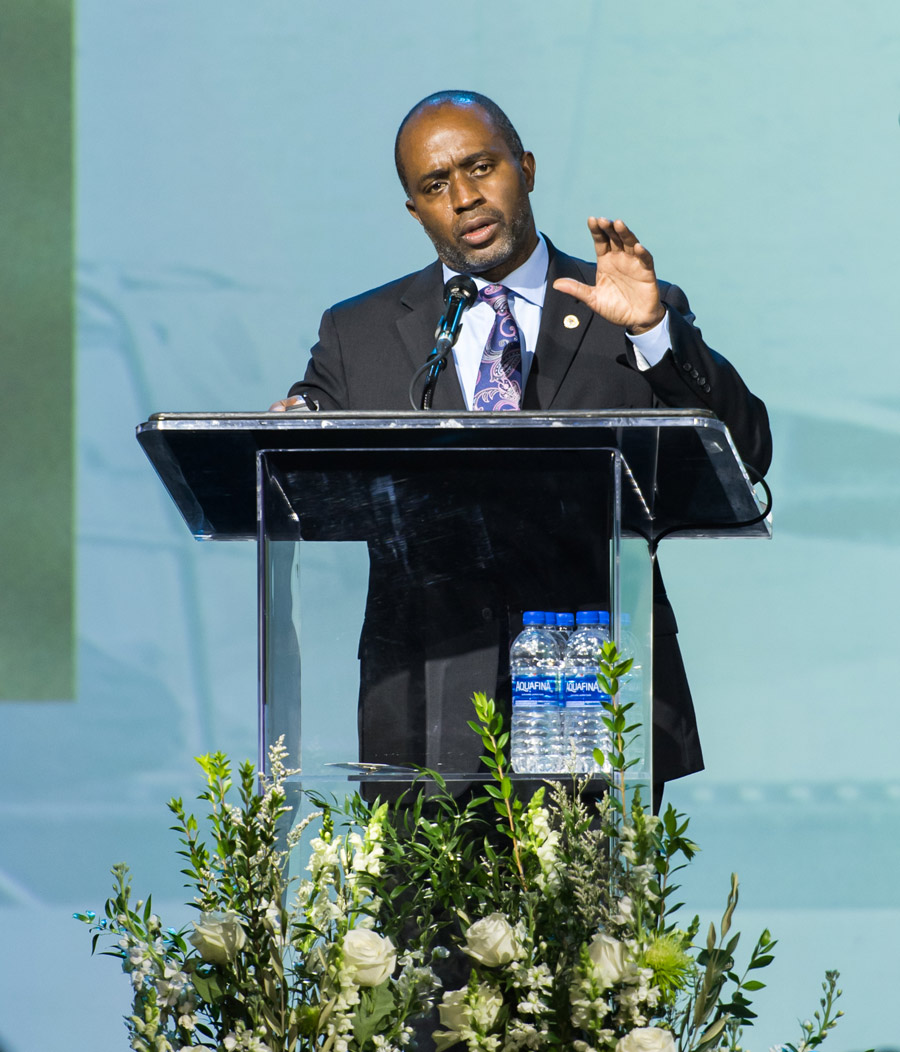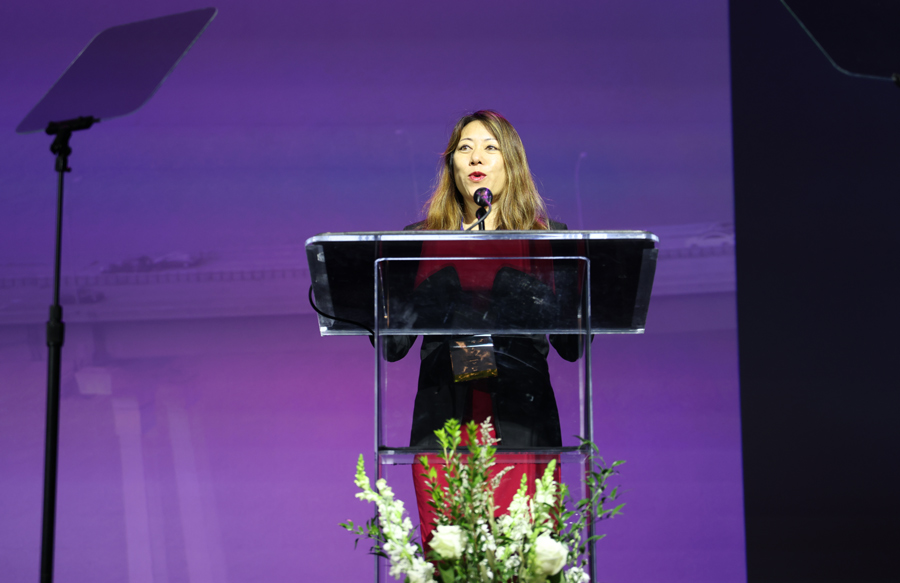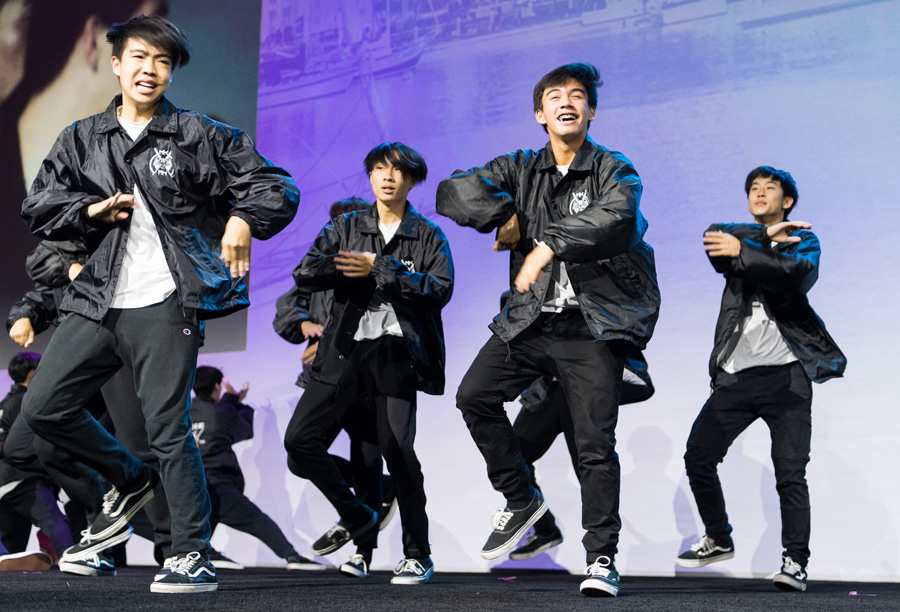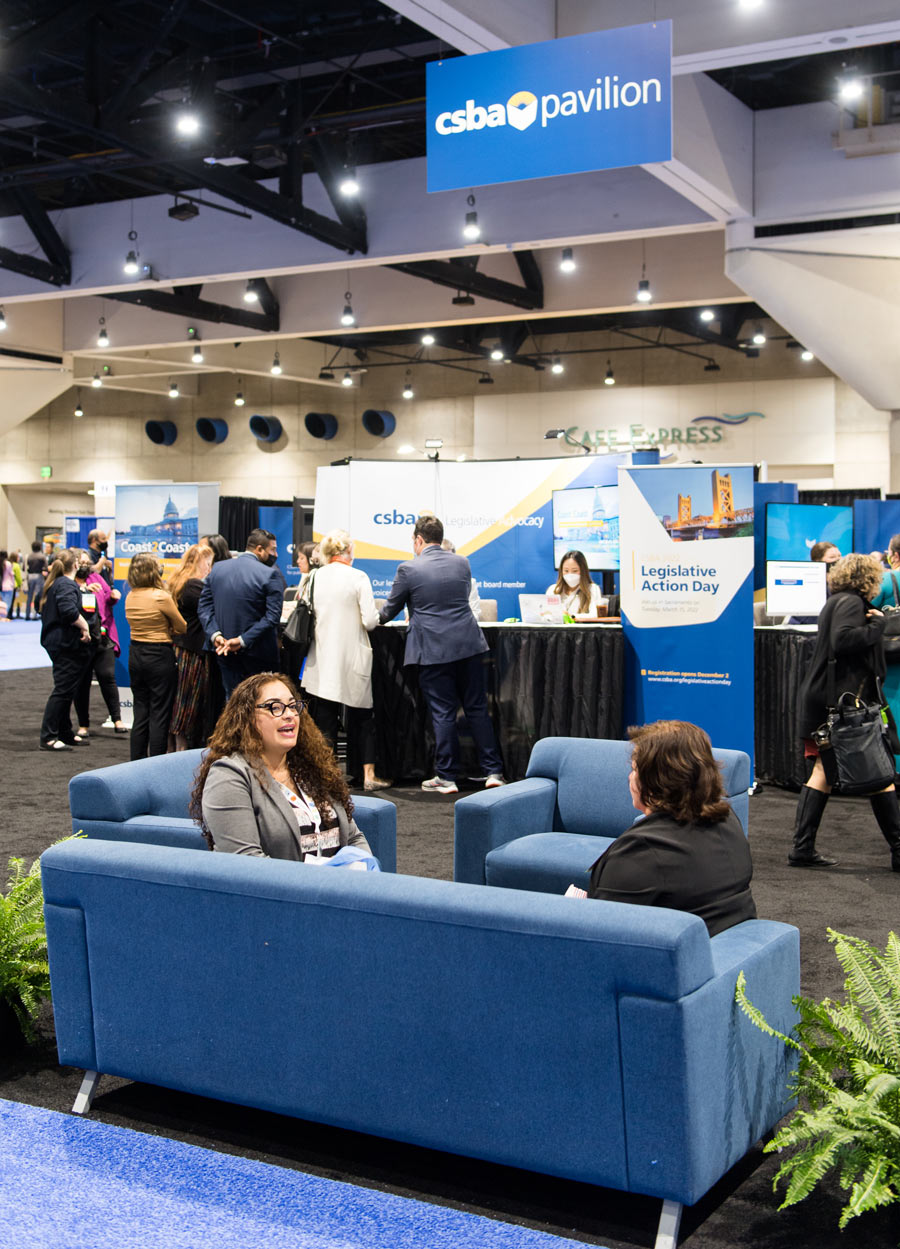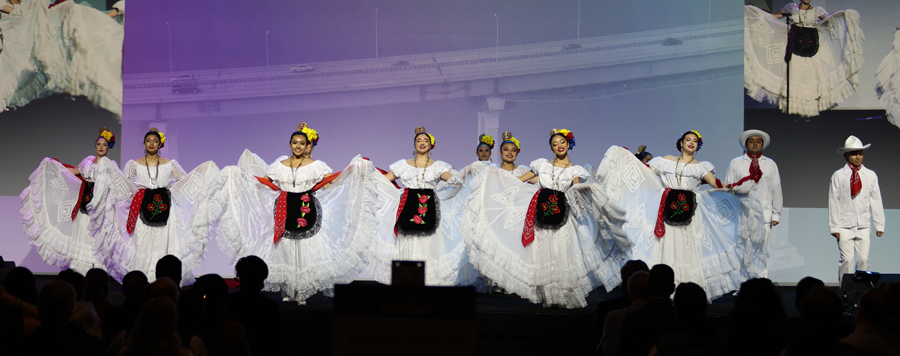Much of Rios’ address focused on teachers. “Your teachers during the pandemic became telehealers,” he said. “We have to help heal the healer. They’re teaching children like me to shape shift. And so, we must support teachers to continue that work of teaching children how to be proud of where they come from, use the assets of their communities in school, and how to make it in school and the workforce.”
Rios spoke about how his research has shown that emotional support is key in student motivation — but also teacher self-efficacy. “If we want to prop up our teachers and help them with the burnout they are experiencing right now, we need to prop up their self-efficacy,” he said. “Self-efficacy is so important because it is my ability to understand that I have the skills and the capacity to transform a child’s life, to educate a child no matter where they come from.”
Rios explained how a teacher saved his life after a long period in a gang and poor academic performance. “Because of a teacher that cared, I found a key to success,” he said. “Teachers help us understand that we can live a second lifetime.”
Rios also shared his philosophy regarding the Maslow and Bloom frameworks. Maslow focuses on social-emotional learning while Bloom emphasizes academic rigor. “It’s time for MasBloom,” he declared. “We need to emphasize social-emotional support alongside academic rigor and, very importantly, high expectations. It’s a prosperity framework and what some folks call the ‘warm demanders.’”
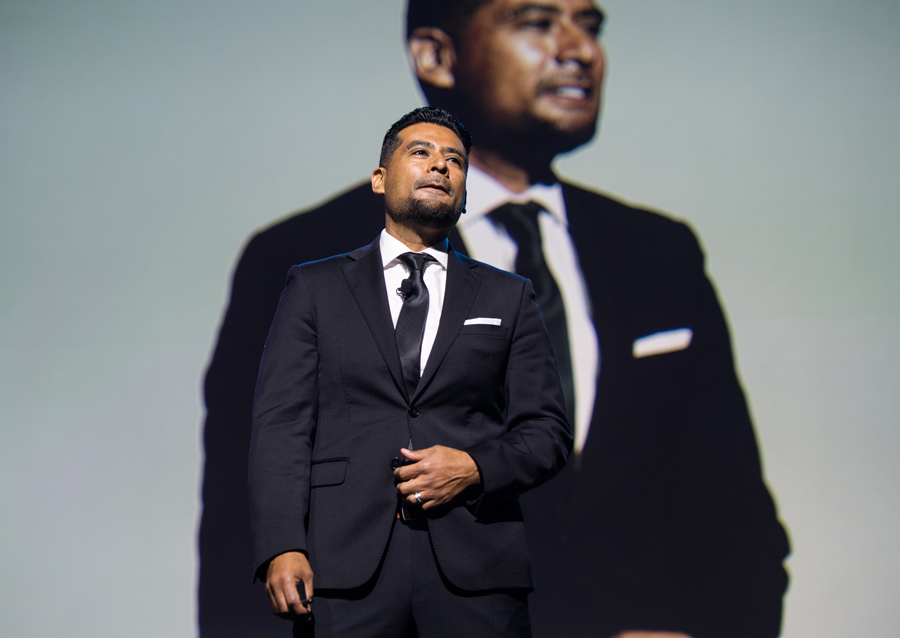
Dr. Victor Rios, associate dean of social sciences and professor of sociology at the University of California, Santa Barbara
“I want to encourage everyone to listen to these young leaders and try to understand their experiences and their thoughts as incoming leaders of this great state,” Billy told the audience. “Now, you may not agree with their comments — and in fact, some of their opinions may make you feel a little uncomfortable — but I hope that you will listen along as we have an unvarnished conversation and try to gain a greater understanding and insight into how students view our education system and the world that we all live in.”
In addition to straightforward mental health services, 2020–21 Oakland USD student board member Jessica Ramos said in the last year her district removed the permanent presence of police from school grounds and boosted resources for Spanish-speaking students and their families — strategies that have been shown to increase the sense of belonging among youth of color in particular.
“Being a board member comes with great power but also a great responsibility to elevate the voices of those who may not have traditionally have a seat at the table. I think that’s something really important to take away with everything you guys do,” Zhou told attendees. “You see a lot of important policymaking, and making sure it’s not always about who might be the loudest in the room [is important] … but who is truly being impacted by these choices and who deserves to have their voice amplified and may need your help in doing so?”
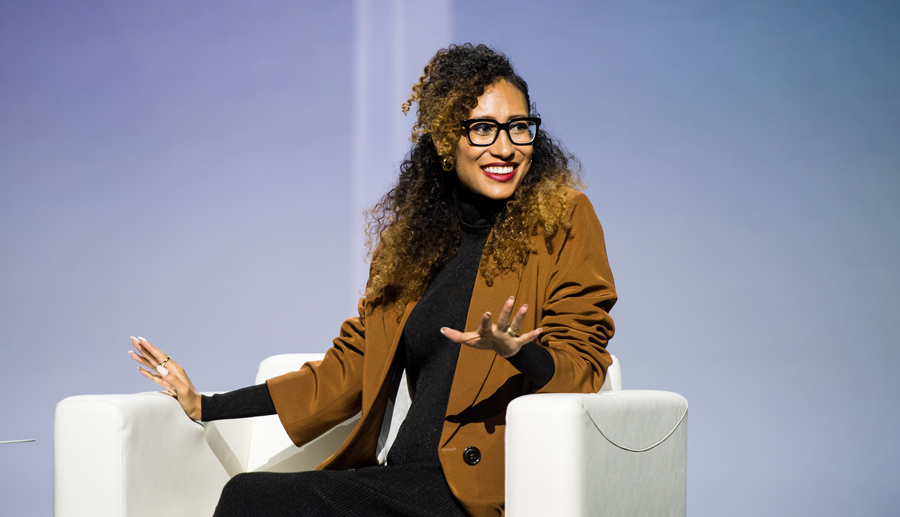
Elaine Welteroth, television host, journalist and author
“So many times throughout our lives as students, we’re told we’re not enough, not prepared enough, not smart enough, not ready to be full trustees on a board of education,” Patterson said, noting that even now, student board members do not have a full vote. “We are students that are looking to be the changemakers in the education system. And yet every time we look to speak up, we are not heard. We can change this, but it’s up to each and every one of us to look inside and ask, ‘Do I listen? Am I respectful? And am I willing to actually put them into a decision-making role?’”
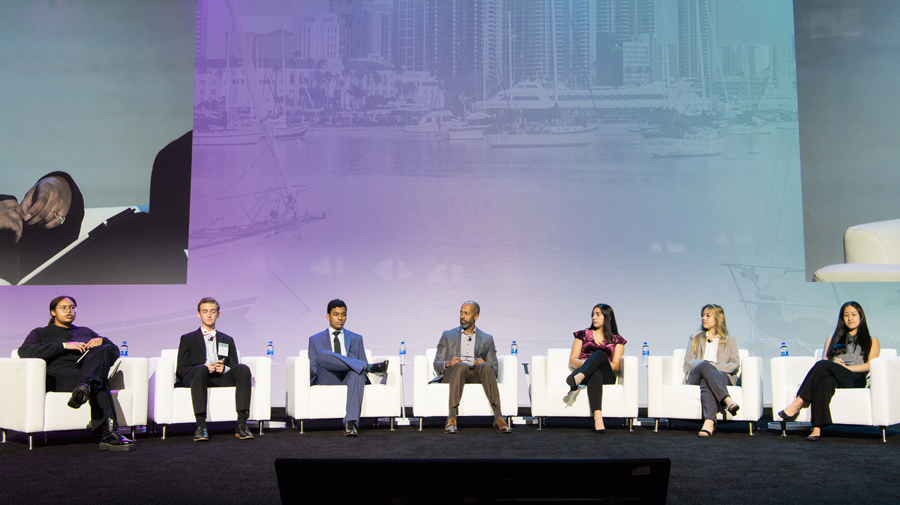
Current and former student school board members with CSBA CEO & Executive Director Vernon M. Billy
The California native — now an acclaimed television host, journalist and author — reminded school board members and other education leaders that the K-12 years are a formative time in young people’s lives. While Welteroth had feelings of “otherness” during school, students today are dealing with similar turmoil as well as issues related to the COVID-19 pandemic, gun violence on campuses and battles over topics such as ethnic studies and critical race theory.
“We have a short window to help a student realize if college is right for them and we have a very small window to help students not going to college understand what their other options might look like,” Welteroth said. “As much as we can, remember that those things above all else have to be prioritized.”
Lacking guidance at school for life after high school, Welteroth recalled feeling lost and said that many students find themselves in the same position. “There’s only so far that your ambition and motivation and drive can take you. You need the support of your school to help guide you in those pivotal moments,” she added.
Support at school becomes even more important when parents aren’t able to assist their children because they’ve never been through the process themselves, Welteroth noted.
Welteroth, who has co-hosted “The Talk” on CBS and sits on the judge’s panel of Bravo’s “Project Runway,” attended college — studying communications at California State University, Sacramento, while CSBA President Heredia was a professor in the education department. Heredia realized the connection while reading Welteroth’s New York Times bestselling book, More Than Enough: Claiming Space for Who You Are No Matter What They Say.
Schools preparing students for unconventional and nonlinear career paths is also important, Welteroth said, as “gone are the days where you’re chasing a singular American dream.” The job market is different than it was for previous generations and young people will “most likely will do many different things in [their] careers.”
Celebrated as a changemaker herself, Welteroth is a podcast host and the former editor-in-chief of Teen Vogue. She was the youngest person to ever serve as an editor-in-chief at a Condé Nast publication and the second person of African American descent to hold the title in the company’s history. She used her position to prioritize diversity and social justice coverage during her tenure from 2016 to 2018.
She compared her time at the publication to the job of a school board member, saying: “As an editor you’re a cultural agenda setter in media, but you [school board members] are all cultural agenda setters within your districts and within the system that you operate. If you feel that the agenda does not address and does not serve the people that you’re all there for, then it’s up to you to change that agenda. It’s up to you to change that conversation, and so that’s really where the change begins. It’s not easy and it doesn’t happen overnight.”
Continuing to use her platform to uplift youth voice, Welteroth defines a changemaker as “someone whose presence challenges the status quo and whose intention is to hopefully push things forward for the betterment of everyone. I think it’s someone who understands that change requires collaboration, communication and empathy for all sides.”
Welteroth advised trustees to listen to students and give them a platform. “Identify young voices with a perspective and give them the platform to take the mic and lead the conversation. That is so important,” she said.
